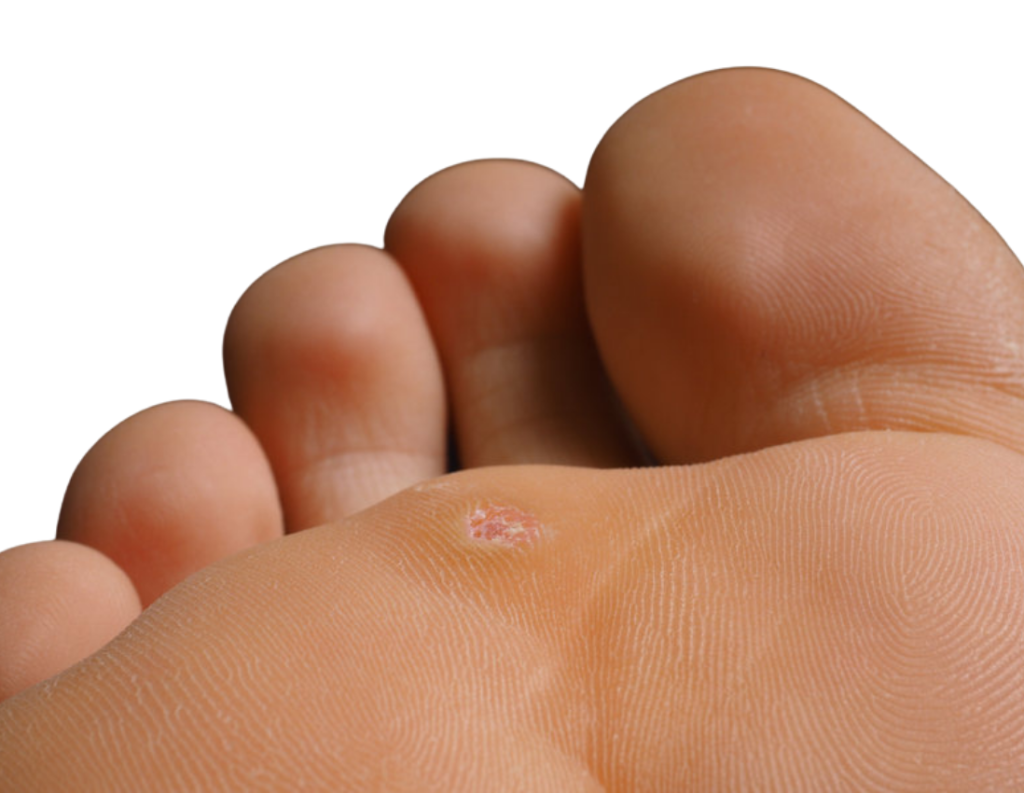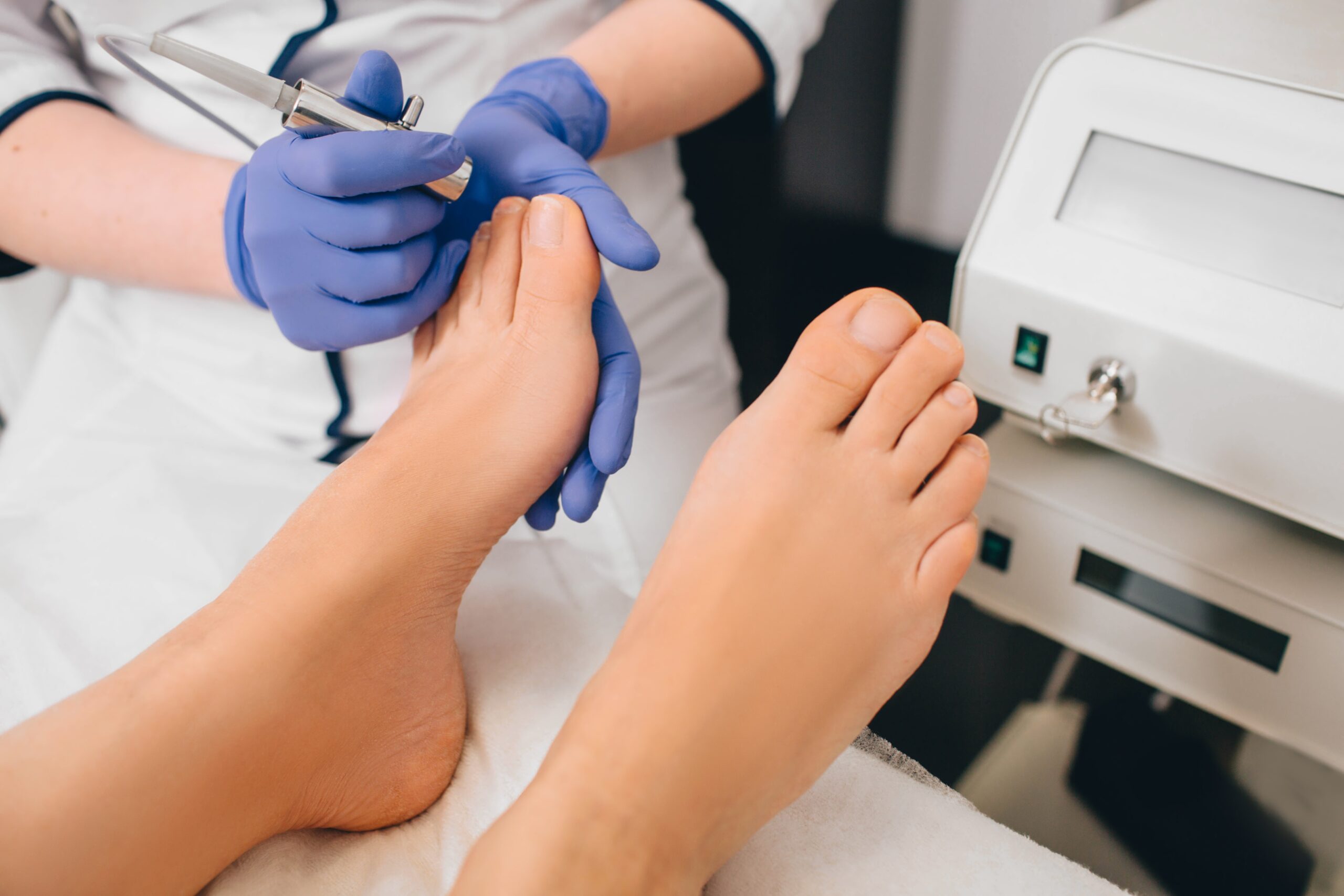Plantar warts may be small, but they can cause big problems—especially when they appear on the soles of your feet. These stubborn growths can make walking painful and interfere with your daily activities. At our podiatry office, we specialize in diagnosing and treating plantar warts to help you get back on your feet—comfortably and confidently.
What Are Plantar Warts?
Plantar warts are rough, grainy growths that develop on the bottom of the feet, typically on weight-bearing areas like the heel or ball of the foot. They are caused by the human papillomavirus (HPV), which enters the skin through tiny cuts or abrasions. Unlike other warts, plantar warts often grow inward due to the pressure from walking, sometimes forming a thick callus over the wart.
Common Symptoms:
- Pain or tenderness when walking or standing
- Small black dots (clotted blood vessels)
- Disrupted skin lines
- A rough, cauliflower-like texture
How Do You Get Plantar Warts?
HPV thrives in warm, moist environments, making public places like locker rooms, swimming pools, and communal showers high-risk areas. You can contract the virus by walking barefoot in these spaces or through direct contact with contaminated surfaces.
Who’s Most at Risk?
- Children and teens
- Athletes and swimmers
- Individuals with weakened immune systems
- People with sweaty feet or frequent barefoot exposure
Treatment Options
While some plantar warts may resolve on their own, many require professional treatment—especially if they’re painful, spreading, or persistent.
In-Office Treatments:
- Cryotherapy: Freezing the wart with liquid nitrogen to destroy the tissue.
- Prescription Medications: Compound prescription specially formulated to peel.
- In office Procedure: For stubborn warts, surgical removal may be necessary with local anesthesia.
Prevention Tips
Preventing plantar warts starts with good hygiene and smart habits:
- Wear footwear in public spaces like pools and gyms.
- Keep feet clean and dry moisture helps HPV thrive.
- Avoid sharing socks, shoes, or towels.
- Disinfect your feet after exposure to communal areas.
- Don’t pick at warts, as this can spread the virus.
When to See a Podiatrist
If you notice a painful growth on your foot, especially one that doesn’t go away or worsens over time, it’s time to consult with Dr. Rappette or Dr. Pandya. Early treatment can prevent complications and help you avoid unnecessary discomfort.
Final Thoughts
Plantar warts may be common, but they don’t have to be a long-term nuisance. With proper care and professional treatment, you can eliminate them and keep your feet healthy. If you’re dealing with a stubborn wart or want to learn more about prevention, schedule an appointment today at one of our offices at 630-553-9300 or 815-942-9050. We’re here to help you walk pain-free and confidently.









